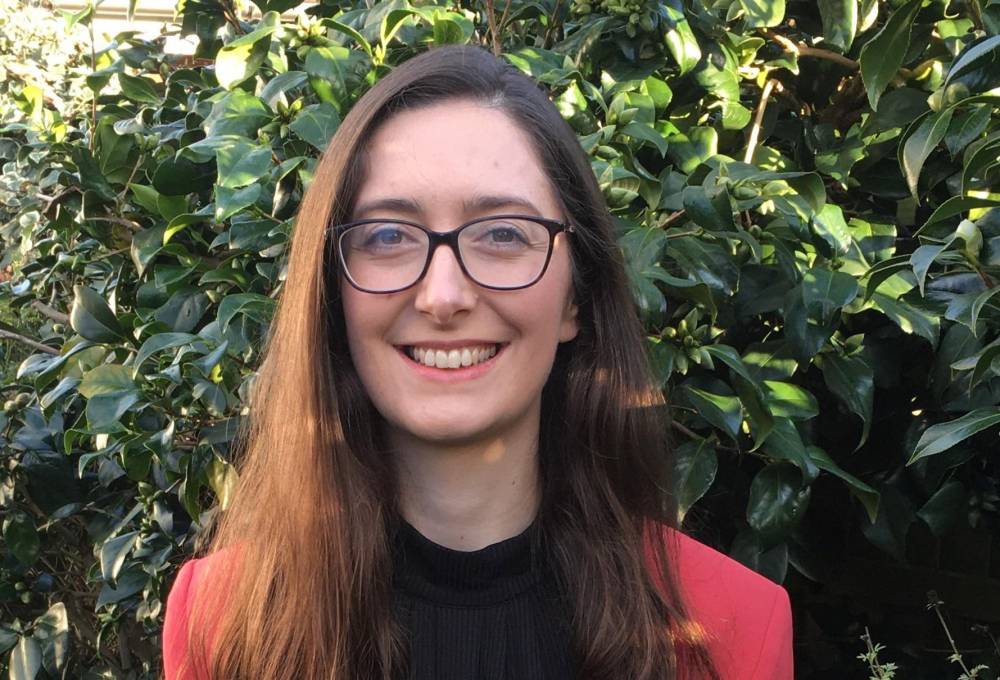Miss Loryn Halliday

Contact
- Email: l.a.halliday@kingston.ac.uk
- Location: Penrhyn Road
- Faculty: Faculty of Engineering, Computing and the Environment
- School: School of Life Sciences, Pharmacy and Chemistry
- Department: Department of Biomolecular Sciences, Department of Pharmacy
- Research group/centre: Diabetes and Cardiovascular Research Group (DCRG)
Research project: The influence of adenosine deaminase 2 (ADA2) on the endothelium
Abstract
Adenosine deaminase 2 deficiency (DADA2) was first reported in 2014, and identified in children with symptoms of early-onset strokes, livedo rashes and systematic vasculopathy, which did not equate to any known familial autoinflammatory diseases. Studies to date have shown that the disease onset can be as young as 2 months old and the severity of the clinical manifestations can vary; children with the most serve cases are reported to have died before their first birthday. Whilst inflammation and vascular pathology have been linked to ADA2 deficiency due to the symptoms presented, the mechanism is not understood. Therefore, it is of importance to understand ADA2's role and its interactions with adenosine, the endothelium and leukocytes. This in turn may also provide knowledge for the most suitable treatments for this group of patients, who do not respond well to conventional steroid treatment.
Thus far, research into ADA2 has shown a wide range of clinical manifestations, a range of mutations in the ADA2 gene, the need for asymptomatic patients to be closely monitored or treated, and the diagnostic potential of ADA2 for vasculitis. This study aims to look at: whether ADA2 is having a direct effect on the endothelium, which adenosine receptors and downstream pathways are involved, how does this cause the disease pathology seen in ADA2 deficiency. Whilst DADA2 is a rare condition, it can have fatal results for the children affected and this research aims to provide insight as to the most effective treatment for both, symptomatic and asymptomatic patients.
- Research degree: PhD
- Title of project: The influence of adenosine deaminase 2 (ADA2) on the endothelium
- Research supervisor: Dr Francesca Arrigoni
- Other research supervisor: Dr Nicholas Freestone
Biography
I am a final year PhD student in Dr Arrigoni's team, collaborating with Dr Freestone and Prof. Brogan at UCL GOS, Institute of Child Health. My research focuses on endothelial biology and deficiency of adenosine deaminase 2 (DADA2). I have gained AFHEA status and work as a post-graduate teaching assistant for LSPC.
Previously, I completed a M.Sc. research project, investigating Human Papillomavirus (HPV) and breast cancer. My interest in research was first sparked during my undergraduate studies at the University of Sussex, in particular, during my third year research project on acute myeloid leukaemia (AML) with Dr Chevassut and Dr Stewart.
My research projects have allowed me to gain valuable laboratory experience in a wide range of techniques including, isolation of cells from whole blood, primary and mammalian cell culture, processing and handling of patient samples in accordance with HTA, RNA/DNA/protein extraction, PCR, immunocytochemistry, confocal microscopy, flow cytometry, gel electrophoresis and ELISA.
Areas of research interest
- The Vascular Endothelium
- Inflammation and damage to the lining of blood vessels
- Deficiency of Adenosine Deaminase 2 (DADA2)
Qualifications
- 2014 B.Sc. (Hons.) Biomedical Science, University of Sussex
- 2015 M.Sc. Biomedical Science (Microbiology), Kingston University
- 2019 Associate Fellow of The Higher Education Academy (AFHEA)
Funding or awards received
- PhD studentship, Kingston University
- Bio-Techne travel grant awarded for the Pharmacology 2019 Conference
- The Physiological Society travel grant awarded for Future Physiology Conference 2019
Publications
Halliday, L., Brogan, P., Freestone, N., and Arrigoni, F. (2020). Selected Abstracts from Pharmacology 2019: Influence of adenosine deaminase2, on the angiogenic function of blood outgrowth endothelial cells. British Journal of Pharmacology 177, 2579.
Stewart, H. J. S., Shalit, E., Halliday, L., Morey, D. and Chevassut, T. J. (2015) 'Acute myeloid leukemia cells exhibit selective down-regulation of DNMT3A isoform 2', Leukemia & Lymphoma, pp. 1-9.
Conference papers
ADA2 expression and activity in blood outgrowth endothelial cells. 3rd International Conference on Deficiency of ADA2 (Virtual conference hosted from Washington USA, 2020). Halliday, L., Brogan, P., Freestone, N., and Arrigoni, F.
Influence of adenosine deaminase 2 on the angiogenic function of blood outgrowth endothelial cells (BOECs). Pharmacology 2019 (Edinburgh, 2019). Halliday, L., Brogan, P., Freestone, N., and Arrigoni, F.
Adenosine deaminase 2 restores the endothelial glycocalyx of blood outgrowth endothelial cells. Future Physiology 2019, The Physiological Society, (Liverpool, 2019). Halliday, L., Esposito, G., Brogan, P., Freestone, N., Arrigoni., F.
Adenosine deaminase 2 promotes growth and migration of blood outgrowth endothelial cells, in the presence of adenosine. First Symposium on Synthesis & Drug Discovery at Kingston University (London, 2019). Halliday, L., Brogan, P., Freestone, N., and Arrigoni, F.

